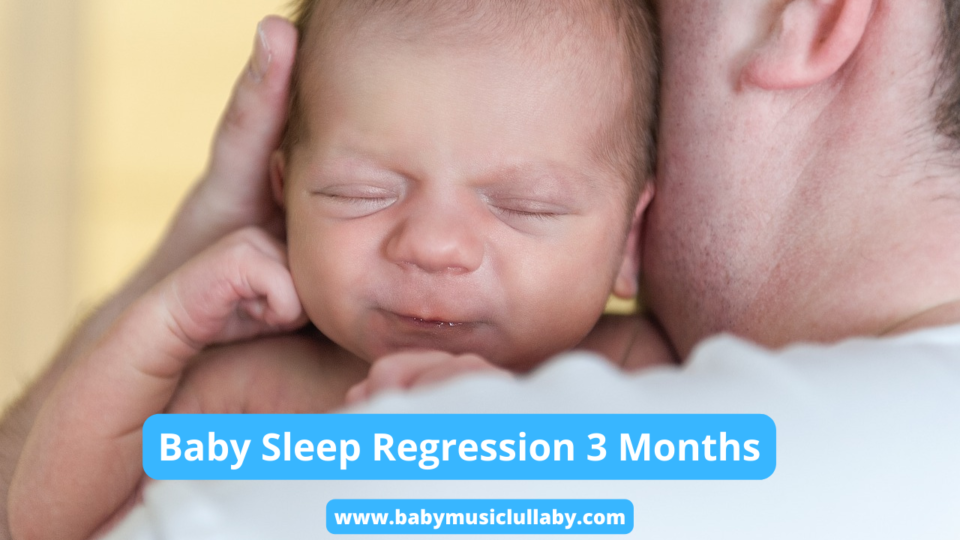Contents
Introduction
Sleep regression is a term used to describe a period of disrupted sleep that babies often go through during their first year. At around 3 months of age, many babies experience a sleep regression phase that can be challenging for both the baby and parents. Understanding the causes and implementing effective strategies can help navigate through this phase more smoothly. In this article, we will explore baby sleep regression at 3 months, signs to look out for, and practical tips for coping with it.
What is Baby Sleep Regression at 3 Months?
Baby sleep regression at 3 months refers to a temporary disruption in a baby’s sleep patterns that typically occurs around this age. During this phase, babies who previously had more predictable sleep may start waking up more frequently at night and have difficulty settling back to sleep. It is believed to be related to developmental changes and adjustments in their sleep cycles.
Signs of Sleep Regression at 3 Months
Recognizing the signs of sleep regression at 3 months can help parents understand what their baby is going through. Here are some common signs to watch for:
- Increased night waking: Your baby may start waking up more frequently during the night, even after previously sleeping for longer stretches.
- Difficulty falling asleep: Your baby may struggle to settle down for naps or bedtime, taking longer to fall asleep or needing more soothing.
- Shortened naps: Naps may become shorter in duration, with your baby having difficulty staying asleep for extended periods during the day.
- Changes in feeding patterns: Sleep regression can sometimes affect a baby’s appetite, causing them to feed more frequently or inconsistently.
- Fussiness and restlessness: Your baby may appear more irritable, fussy, or restless during awake periods, showing signs of tiredness.
Coping Strategies for Sleep Regression at 3 Months
While sleep regression can be challenging, there are strategies that parents can employ to cope with it effectively:
1. Create a Soothing Bedtime Routine
Establishing a consistent bedtime routine can help signal to your baby that it’s time to wind down and prepare for sleep. Include activities such as a warm bath, gentle massage, or soft music. Following the same routine every night can create a sense of predictability and relaxation.
2. Encourage Self-Soothing Techniques
Introduce gentle self-soothing techniques that can help your baby fall back asleep independently. This can include placing your baby in the crib when drowsy but still awake, allowing them to learn how to self-soothe and settle themselves back to sleep.
3. Offer Comfort and Reassurance
During sleep regression, your baby may need extra comfort and reassurance. Respond promptly to their needs, offering gentle cuddles, soothing words, or a favorite blanket or toy. Your presence and soothing touch can help them feel secure and calm.
4. Maintain a Sleep-Friendly Environment
Ensure that your baby’s sleep environment is conducive to restful sleep. Keep the room dark, quiet, and at a comfortable temperature. Consider using white noise or a gentle lullaby to create a soothing ambiance. These environmental cues can help signal sleep time and promote better sleep quality.
5. Practice Healthy Sleep Habits
Encourage healthy sleep habits during the day to support better sleep at night. This includes providing regular daytime naps and maintaining a consistent schedule. Avoid overtiredness by watching for your baby’s sleepy cues and helping them settle down for naps before they become overly tired.
FAQs About Sleep Regression at 3 Months
FAQ 1: How long does sleep regression at 3 months last?
Sleep regression at 3 months typically lasts for a few weeks, but the duration can vary for each baby. It is important to remember that this phase is temporary, and with time, your baby’s sleep patterns will gradually stabilize.
FAQ 2: Can sleep regression be prevented?
Sleep regression is a natural part of a baby’s development, and it cannot be entirely prevented. However, practicing good sleep habits from early on, such as establishing a bedtime routine and promoting healthy sleep environments, can help minimize the impact of sleep regression.
FAQ 3: Is sleep regression the same for all babies?
Sleep regression can vary from baby to baby. While some babies may experience more significant disruptions, others may go through milder periods of sleep regression. Every baby is unique, and their sleep patterns and behaviors can differ.

Conclusion
Sleep regression at 3 months can be a challenging phase for both babies and parents. By understanding the signs, implementing effective coping strategies, and maintaining a consistent sleep routine, you can navigate through this temporary disruption with greater ease. Remember to be patient and provide your baby with the comfort and support they need during this developmental milestone. With time, their sleep patterns will gradually improve.

 Subscribe to Get Soothing Lullabies to Help Your Baby to Sleep
Subscribe to Get Soothing Lullabies to Help Your Baby to Sleep
1 comment
[…] Baby Sleep Regression 3 Months […]